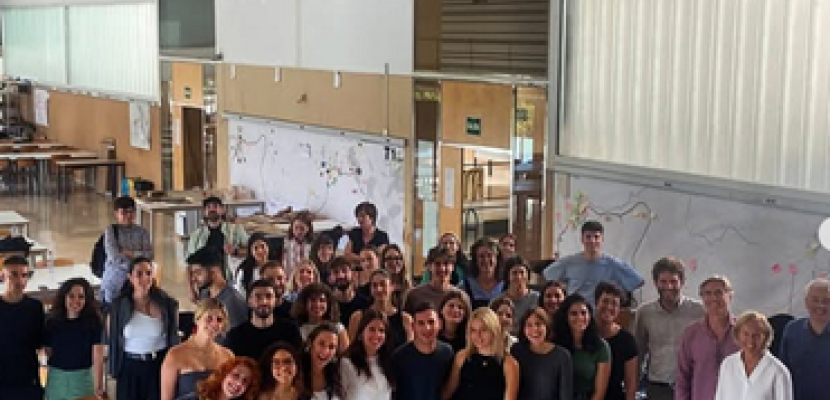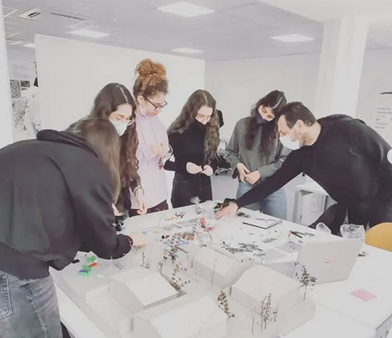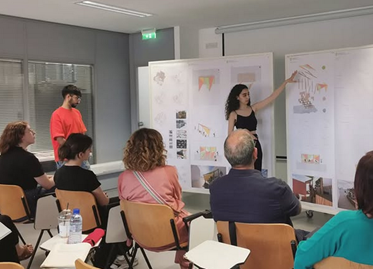
Co-creation design studio: a community-engaged pedagogy

About this good practice
The co-creation studio (https://www.instagram.com/cocreationstudio.ucy/) was established and implemented in 2021 in an attempt to put a higher priority on social sustainability issues during the architectural design studio and systematize research and its relationship with pedagogy. It embraces a trans-disciplinary framework and incorporates community-engaged approaches and situated learning. Simultaneously, it examines the impact of the approach through participatory action research and knowledge co-production with stakeholders outside of academia, linking research with teaching and learning. Since 2021, the studio has been implementing co-creation activities in different Nicosia neighborhoods including co-designing and implementing a public space in a neighborhood in Latsia Municipality and co-designing and building an outdoor “classroom” in Latsia’s high school yard. Co-creation activities included a series of collaborative workshops from challenges identification, needs prioritization to joined proposals and implementation of the proposals/interventions (design and build) and final events once the constructions were implemented. In the co-creation studio collaborative mapping through either Padlet or Google maps is used as well as collaborative work on Miro boards. As a result, citizens feel the sense of ownership, being part of local development; students have gained experience in designing on real conditions/environments, and many more.
Resources needed
3 tutors / funding varies depending on the project (from 5.000euro-70.000euro)
Evidence of success
UCY co-creation studio:
• gave students valuable experiences, transversal skills & competencies and helped them recognize their multidimensional role as architects.
• promoted cooperation between the quadruple-helix:
- encouraging residents to engage in activities about their environment.
- providing future decision-makers, stakeholders at municipal planning levels & enterprises, the competences, skills and tools to encourage co-creation of public spaces with participatory approaches in Cyprus
Potential for learning or transfer
the project:
- developed a framework for community engagement in urban decision making
- promoted cooperation between academia, society and practice.
- gave students the opportunity to gain valuable experiences, to develop practical and soft skills and recognize their multidimensional role as future architects
The practice refers to an applied methodology. No special equipment or infrastructure is required; therefore, it is easily transferable and replicable to any interested region or other locality.
This trans-disciplinary learning environment:
- lays the basis for a long-term collaboration between the municipality, the community, professional practitioners in the sector, and academia.
- establishes both the University and local municipalities as open and vital actors in local/regional urban development, working to ensure a transparent, inclusive, and reasonable process of urban development.
- introduces an alternative approach to urban government and urban commons
Further information
Images


Documents
Good_practice_Details_CiviTec_ANEL_FINAL..pdf
Website
Good practice owner
You can contact the good practice owner below for more detailed information.